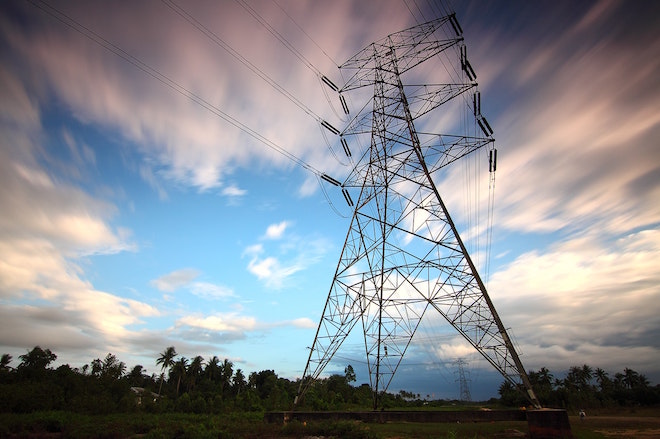Global energy demand is at an all-time high, and aging power systems are constantly struggling to keep up with demand. Blackouts and power shortages have been a reoccurring in problem in many places in the world, and the situation is likely to get worse before it gets better.
Luckily, blockchain can help. This new technology looks to alleviate some of the stresses of today’s power grids with decentralized, autonomous and efficient systems which will make energy consumption in the future smarter and more cost-effective.
There are a number of different blockchain projects looking to combat the world’s energy problems. In this article, we take a closer look at 3 of them which show great promise.
Grid+

Grid+ plans to turn the world of energy on its head with its artificial intelligence powered “smart energy agent”. This hardware device will be placed in your home, and using AI and your energy usage patterns, the smart energy agent will anticipate your energy usage demand and automatically purchase your energy for you when it is cheapest.
Your “smart energy agent” will have access to multiple energy markets and will make real-time purchasing decisions for you as often as every fifteen minutes. This all happens automatically in the background so you don’t even have to think about it!
If you have solar panels, Grid+ will also automatically sell excess energy which you generate. You can also store the energy which you harvest in your home battery and then sell it once the market price goes up, making you more money.
All transactions will be completed using BOLT, the native token for Grid+. Energy which is bought by your energy agent will be paid for with BOLT tokens. Any energy which you sell will also be paid to you in BOLT tokens.
For more information on Grid+, see their website and whitepaper.
Power Ledger

Power Ledger is the world’s first commercially-available, blockchain-based, decentralized energy trading platform. They operate a distributed P2P blockchain network which allows users to automatically sell and buy electricity harnessed from solar panels. The autonomous and trustless systems blockchain offers make it an ideal technology to reduce many of the inefficiencies power grids experience today.
Here’s how it works. If a house has extra power which was captured during the day and is stored on the house’s battery, it could automatically sell a certain predetermined portion to another house on the Power Ledger network.
If, for instance, the agreed-upon price for one kilowatt hour purchased on Power Ledger’s network was $0.20, the majority of this fee would be paid to the house supplying the power (around $0.15). A smaller fee would be paid to the utility company for usage of the electrical grid, and an even smaller percent would be paid to Power Ledger for use of their network.
All of these transactions will be paid in Power Ledger’s native token, POWR.
Power Ledger was at the 2017 Blockchain Summit where they got a lot of attention and they look to make many more strategic partnerships in 2018.
For more information on Power Ledger, see their whitepaper and website.
Electron

Electron is a UK-based company aiming to use blockchain technology to create a decentralized natural gas and electricity metering system. Their platform will help users switch between the two efficiently. Registering energy meters on the blockchain will help utility companies comply with upcoming regulations which will require upgrades to existing metering systems and make the existing systems more efficient.
Currently, there is no centralized register of all the electricity and gas meters in the UK. Because of this, it can take two to three weeks for a customer to switch their utility services from one source to another. Electron’s blockchain technology hopes to reduce this time down from multiple days to “mere minutes”.
The company is looking to offer meter registration on the blockchain free of charge to utility companies and then offer value-added services such as decentralized P2P energy trading. Chief Operation Officer, Joanna Hubbard, stated that Electron isn’t looking to overly commercialize their product but rather they’re looking to deliver it to the industry and then build upon it in the future.
Electron has been awarded two Innovate UK grants and over half a million pounds of venture capital funding. Recently, in September 2017, Electron was awarded what they described as “substantial funding” from the UK Energy Entrepreneur Fund. They are looking to scale up their operations in 2018.
For more up-to-date information on Electron, see their website.

